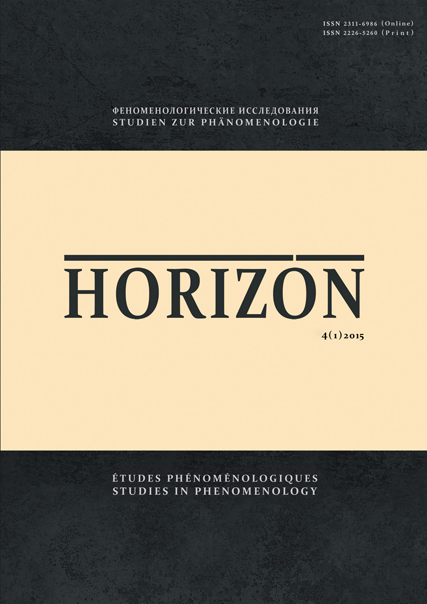ON THE PHENOMENOLOGICAL STRUCTURE
OF ETHICAL TESTIMONY
ON THE PHENOMENOLOGICAL STRUCTURE
OF ETHICAL TESTIMONY
Author(s): Nicolas Garrera-TolbertSubject(s): Ethics / Practical Philosophy, Phenomenology
Published by: Издательство Санкт-Петербургского государственного университета
Keywords: ethical call/demand (appel/Anruf); ethical difference; ethical experience; evidence; testi¬mony; Heidegger
Summary/Abstract: The essay aims to elucidate the phenomenological structure of ethical testimony. I start by referring tothe perplexing current situation that, despite our having a plurality of testimonies that elaborate, oftenin a philosophically insightful manner, the experience of those whose lives were transfigured by theemergence of human evil, philosophy has not yet undertaken a systematic investigation of the philosophicaland, especially, ethical significance of testimonies. Further, I present a concept of testimony asa proto-philosophical, narrative elaboration of the meaning of «ethical experience». I define the latteras an experience in which the irreducibility of good to evil («ethical difference») is revealed to us as«evidence» that cannot be denied, except perhaps at the price of betraying ourselves in our innermostself or identity (§ 1). Second, I show why phenomenology has a crucial role to play in the elucidationof the philosophical meaning of testimony and describe in some detail the relationship between ethicalexperience and testimony. In particular, I examine the crucial issue of the impossibility of exhaustingthe meaning of ethical difference in a purely theoretical or conceptual discourse: ethical difference,I claim, is not a pure eidos, but is always given in experience as an un-totalizable plurality of meanings,as a radically open series of expressions of the cleavage between good and evil as an irreduciblepolarity (§ 2). Finally, I suggest that Heidegger’s analysis of «testimony» (Bezeugung) in § 54–60 ofSein und Zeit may be read as describing some essential traits of our encounter with truth(s) as givenin experience. On this basis I briefly show that, when interpreted in specifically ethical terms, such ananalysis may contribute to the understanding of how ethical difference is actually given in experience,and, consequently, of testimony in its ethical dimension (§ 3).
Journal: Horizon. Феноменологические исследования
- Issue Year: 4/2015
- Issue No: 1
- Page Range: 158-170
- Page Count: 13
- Language: English

